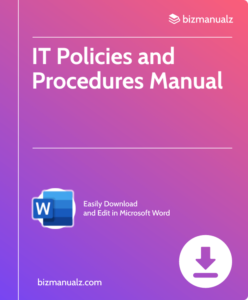What are Data Protection Officer DPO Responsibilities?

Data Protection Officer responsibilities are highly important for protecting sensitive data. The Data Protection Officer (DPO) makes sure that laws regarding data protection are followed, reduces risks, and is in charge of responding to data breaches. They also do regular reviews and provide professional advice on privacy topics. What are Data Protection Officer DPO Responsibilities?
Definition of a Data Protection Officer (DPO)
Data Protection Officers (DPOs) are the guardians of data protection laws and regulations. They monitor how personal data is managed, evaluate data processing activities and ensure that individuals’ privacy is respected.
DPOs serve as a contact point between the organization and regulatory bodies. They provide guidance on how to handle data in accordance with laws, so that individuals’ rights are kept safe. DPOs also audit internally, assess risks and create policies and procedures to secure personal info.
Moreover, DPOs must stay abreast of the latest developments in data protection. They should have an in-depth knowledge of relevant legislation and be able to explain it to the organization. This way, DPOs can detect potential risks or non-compliant practices and put measures in place to prevent them.
Additionally, it is essential for DPOs to have strong communication skills. They must be capable of transforming complex legal matters into easy-to-understand terms for all types of people in the organization. Don’t forget that DPOs are the protectors of your personal data – like a scarecrow at a pumpkin patch – so their job should never be taken lightly!
Pro Tip: Make sure to have clear communication lines to effectively deal with privacy issues.
Being a Data Protection Officer is like being a referee in a match where every player plays unfairly and thinks they’re a superstar!
Importance of a DPO
To better understand the importance of a DPO, let’s delve into the responsibilities they hold. Protecting personal data and ensuring compliance with data protection laws and regulations are key aspects of a DPO’s role. Data Protection Officer ensures effective governance and safeguards individuals’ privacy rights while adhering to legal requirements.
A DPO (Data Protection Officer) is essential for securing confidential personal data. They are responsible for monitoring data protection, enforcing rules, and making sure laws and regulations are followed.
By assessing data processing activities, recognizing risks, and taking appropriate actions, they help to keep an organization’s integrity and trustworthiness intact.
A DPO is also the contact between the company and supervisory authorities. They notify any data breaches or non-compliance incidents right away, so that solutions can be found and damages can be limited.
Furthermore, a DPO encourages a data protection culture in an organization. They provide advice on the best methods and raise employees’ awareness of their data privacy responsibilities.
Under the European Union’s GDPR (General Data Protection Regulation), having a DPO is mandatory. In Article 39(1)(a), organizations must appoint a DPO when they process massive amounts of sensitive personal data or monitor on a large scale systematically. This demonstrates how serious data privacy is in the digital world.
Protection of Personal Data
Protecting personal data is super important in today’s digital age. Cyber threats and data breaches are increasing, so it’s crucial to keep sensitive info secure from unauthorized access and misuse.
To understand why we need to protect personal data, let’s look at the key aspects that help us do it. These elements will give us insights into the value of having an effective Data Protection Officer (DPO).
Data privacy regulations like GDPR and CCPA are vital for sticking to data protection standards. A DPO can help implement the necessary measures and conduct regular compliance assessments.
A DPO can also identify potential risks by doing vulnerability assessments. This helps them spot weaknesses in security systems and take action to stop them.
The Cambridge Analytica case is a perfect example of the importance of DPO responsibilities. This notorious company illegally accessed Facebook users’ data for political purposes without permission. Had there been an effective DPO at Facebook during that time, they could have noticed the unauthorized access of user data quickly and taken action to protect users’ privacy rights.
Security measures like encryption turn sensitive info into unreadable code, stopping unauthorized access. An incident response plan should be ready if there’s a security breach or data loss. This way, a DPO can act quickly to minimize the impact on people’s personal information.
Organizations can make data protection even better by:
- Training staff about best practices.
- Limiting access to authorized personnel only.
- Auditing processes and systems.
- Keeping track of data breaches.
By following these tips, organizations can protect personal data better and reduce potential risks. A great DPO is necessary in today’s digital world to make sure confidential data stays private, secure, and available.
Compliance with Data Protection Laws and Regulations
Adhering to data protection laws is essential for organizations. It guarantees secure handling and processing of personal data, upholding individuals’ privacy rights. Let’s explore the importance of compliance with a table:
| Aspect | Importance |
|---|---|
| Legal Compliance | Avoids penalties |
| Data Security | Protects sensitive data |
| Transparency | Builds trust |
| Consent Management | Respects individual rights |
| Breach Response | Mitigates damages |
Organizations must comply to avoid hefty fines and legal consequences. Robust security measures ensure confidentiality, integrity and availability of sensitive information. Transparent practices promote trust between customers and companies and consent management grants individuals control over their personal data. An effective breach response plan minimizes potential damages.
It’s essential for businesses worldwide to stay updated with evolving laws and review their procedures regularly. Not complying can have a significant impact on reputation and finances. A DPO’s job is being the referee in the privacy game, ensuring all follow the rules and no personal data is compromised.
Responsibilities of a Data Protection Officer (DPO)
A Data Protection Officer (DPO) is essential for protecting data in an organization. They have a range of duties that contribute to securing sensitive information and abiding by data protection laws.
Such responsibilities include:
- Assessing & Managing Risks – Identifying potential threats to data security & privacy, conducting risk assessments, and implementing measures to counter them. Making sure appropriate safeguards are in place to secure personal data from unauthorized access, loss or theft.
- Advising on Data Protection – As a subject matter expert, the DPO provides advice and guidance on all matters of data protection. They educate employees on their responsibilities when handling personal data and confirm that policies & procedures are in line with relevant regulations like the General Data Protection Regulation (GDPR).
- Monitoring Compliance – The DPO tracks the organization’s compliance with data protection laws & regulations. Audits, inspections and investigations are conducted to follow legal requirements. In case of any breaches or non-compliance, appropriate actions are taken and incidents are reported to relevant authorities.
- Acting as a Point of Contact – The DPO serves as a point of contact for people whose personal data is being processed by the organization. Inquiries, requests for access or erasure, and any worries or complaints about data protection are dealt with. They play a key role in staying transparent and building trust between the organization and external stakeholders.
Apart from these duties, a DPO also keeps up with emerging trends in data protection, attends training programs, and cooperates with other departments to ensure safeguarding personal data.
Take XYZ Corp., a leading retail company – their website suffered a cyber attack which exposed thousands of customer records. But, thanks to having a vigilant DPO, the breach was detected quickly, measures were taken to contain it, and the incident was reported to regulatory authorities in time. This enabled the company to address the issue promptly, lower risks and sustain customer trust.
This example highlights the importance of having a Data Protection Officer – they prevent & address data breaches, protecting an organization’s reputation and creating a secure environment for managing personal data. Being a Data Protection Officer is more than just keeping secrets – it’s like being a superhero!
To effectively handle the responsibilities of a DPO in ensuring data protection, you need to be well-versed in developing and implementing data protection policies and procedures. Compliance with data protection laws and regulations is crucial. Educating and training employees on data protection practices is essential. Monitoring and responding to data breaches is a top priority. Lastly, acting as a point of contact for data subjects and regulatory authorities is a key duty.
Developing and Implementing Data Protection Policies and Procedures
A Data Protection Officer (DPO) is responsible for making and using data protection plans and rules. This means forming instructions and rules to assure the confidentiality and agreement of confidential data within an organization.
To effectively do this, use these steps:
- Do a thorough risk survey to spot any probable weak points in the organization’s data system.
- Make a plain and concise data protection policy that explains the company’s dedication to protecting personal data.
- Set up right systems for handling, storing, and discarding of confidential data, making sure to obey with applicable laws and regulations.
- Train employees on data protection measures, counting secure password control, encryption techniques, and the importance of regular backups.
- Check and update the policies and systems often to fit changing technology or legal requirements.
- Monitor the implementation of these policies through regular reviews or assessments to make sure they are working.
Moreover, it is essential for the DPO to be aware of new trends in data protection practices by attending conferences or engaging in continuous professional development activities. This will help them make wise decisions when forming or refreshing policies.
In addition, organizations should create incident response plans that explain special actions to be taken in case of data breaches or security incidents. These plans should include steps such as notifying affected individuals, cooperating with regulatory authorities, conducting investigations, and executing remedial measures.
By using data protection policies and plans, organizations can comply with legal requirements and also create trust among customers and stakeholders. By proactively addressing potential risks related to data management, organizations can decrease the bad effects of breaches or non-compliance.
By carefully following these suggestions, organizations can build a solid base for protecting sensitive information while following ethical standards. The main aim is to assure the confidentiality, integrity, and availability of personal data throughout its lifecycle within an organization’s systems.
Be a DPO and explore the murky waters of data protection laws and regulations; get ready for a wild ride on the rollercoaster of compliance!
Ensuring Compliance with Data Protection Laws and Regulations
The Data Protection Officer (DPO) plays a key role in protecting sensitive info, and meeting data protection laws. Duties include:
- Data Mapping: Identifying types of personal data collected, processed, stored, and shared. Assess data flows and doc relevant details.
- Risk Assessment: Evaluating any risks with data processing activities. Assess the impact on privacy and ensure safeguards are in place.
- Policies and Procedures: Develop policies to comply with data protection laws. These provide employees with a framework for handling personal data.
- Staff Training: Educate employees on their obligations under data protection laws. Create awareness on best practices for secure data handling.
- Consent Management: Ensure valid consent is obtained from individuals before collecting their personal data. Establish processes for obtaining, managing, and renewing consent.
- Monitoring and Audit: Monitor compliance activities and conduct internal audits to identify any potential violations related to personal data processing.
To fulfill responsibilities, the DPO should regularly update on evolving regulations, provide clear channels for individuals to exercise their rights, incorporate privacy features into systems, have a data breach response plan, and perform due diligence on third-party vendors/partners accessing personal data. This will help safeguard personal data and uphold individual privacy rights.
Educating and Training Employees on Data Protection Practices
Educate employees on data protection! Teach them the importance, legal/ethical obligations, and best practices. They should understand secure communication channels, strong passwords, and updating software. Identify & respond to potential security breaches. Invest in training programs to stay updated with the latest security measures. Safeguard info and create a culture of data protection. Be prepared for unplanned dips into your sensitive data.
Monitoring and Responding to Data Breaches
Monitoring and responding to data breaches is a key responsibility of Data Protection Officers (DPOs). This includes tracking and tackling any incidents that could compromise personal data security and privacy. To handle this, the DPO must be knowledgeable in various protocols and procedures. Let’s further explore the elements of monitoring and responding to data breaches.
| Element | Description |
|---|---|
| Incident Detection | Employing advanced monitoring tools to recognize potential breaches in real-time. |
| Investigation | Doing detailed investigations to figure out the cause, impact, and extent of the breach. |
| Containment | Taking immediate action to stop further spread or impact of the breach. |
| Notification | Informing affected individuals and relevant authorities about the breach. |
It is also essential for the DPO to keep accurate documentation throughout the incident response process. This includes collecting evidence, recording steps taken, and providing clear reports for future reference. This helps with regulatory compliance and transparency.
Moreover, a Verizon report titled “2021 Data Breach Investigations Report” found that 85% of data breaches involved human elements like phishing attacks or social engineering tactics. This shows the importance of not only technological measures, but also staff awareness training in preventing and responding to data breaches.
Being a DPO means you’re the go-between for confused data subjects and suspicious regulatory authorities – that’s one job that makes you sweat!
Acting as a Point of Contact for Data Subjects and Regulatory Authorities
As a Data Protection Officer, a main duty is to be the point of contact for data subjects and regulators. This includes dealing with questions or worries people have over their personal data and working with regulators to follow rules.
The table below explains what duties a DPO has when connecting with people and regulators:
| For Data Subjects | For Regulatory Authorities |
|---|---|
| Answer questions and requests about personal data | Assist with audits or investigations |
| Give information about data processing and handle complaints | Tell authorities about data breaches or incidents |
| Help people use their data rights, such as access, change or delete | Work with regulators to make and use privacy policies |
| Make sure consent is properly given and get feedback about data processing | Be the connection between the organization and regulators for data protection |
It’s also important for a DPO to know the current laws and regulations. This way they can adjust the organization’s data protection practices accordingly. A very important example of this was when Facebook had the Cambridge Analytica scandal. It was found that Cambridge Analytica got personal data from millions of Facebook users without permission. Regulators around the world looked into Facebook’s handling of user data, proving how important it is to have a great system for dealing with people and regulators.
Qualifications and Skills Required for a DPO
To effectively navigate the responsibilities of a Data Protection Officer (DPO), possessing the right qualifications and skills is crucial. With a deep knowledge of data protection laws and regulations, an understanding of information security practices, and strong communication and interpersonal skills, you can ensure compliance and protect sensitive data. Let’s explore these sub-sections for a comprehensive understanding of the qualities sought in a competent DPO.
To be a successful Data Protection Officer (DPO), certain qualifications and skills are a must. These include:
- Knowledge of data protection laws
- Understanding of IT security
- Good communication skills
- An analytical mindset
- Ethical behavior
Additionally, staying up-to-date on industry trends is essential. The 2018 British Airways’ breach highlighted the importance of a DPO. As a result, they appointed a dedicated one to oversee their data protection efforts. This illustrates the growing appreciation of this role in organizations everywhere.
Knowledge of Data Protection Laws and Regulations
Exploring data protection laws and regulations in an organized manner can illustrate their complexity and importance. For example, the European Union (EU)’s General Data Protection Regulation (GDPR) gives individuals the right to access, modify, or delete their personal data.
In addition to GDPR, other regions or countries may have specific laws, like California’s CalOPPA (California Online Privacy Protection Act), which requires operators of commercial websites collecting personally identifiable information from California residents to comply with certain requirements.
It is therefore important for DPOs (Data Protection Officers) to stay up-to-date with evolving laws and regulatory changes. Reviewing legal documents, seeking professional development opportunities, collaborating with legal teams within organizations, and attending conferences, workshops, webinars, or pursuing certifications in data protection law are all ways to enhance their knowledge base and guide their organization through complex regulatory landscapes while minimizing potential risks associated with non-compliance.
Understanding information security practices is essential for protecting an entire company’s sensitive data from cybercriminals – just like locking your door before going on vacation.
Understanding of Information Security Practices
A DPO must know information security practices deeply. Here’s a table of qualifications and skills needed:
| Qualifications | Skills |
|---|---|
| Know data protection laws | Risk assessment & mgmt |
| Conduct data audits | Incident response planning |
| Create data protection policies | Understand cryptography |
| Be familiar with security techs | Conduct security awareness training |
Plus, pay attention to details. Adapt to evolving tech, stay up-to-date with industry trends & emerging threats.
A real-life example proves its importance. A comp had a massive data breach due to lack of security. This caused financial losses & lost customer trust. With knowledge of info security, the DPO successfully implemented robust protocols, restored credibility & prevented future breaches.
Having the necessary qualifications to become a DPO may not be the most exciting job, but it can help keep everyone’s sensitive info safe.
Communication and Interpersonal Skills
DPOs need excellent communication and interpersonal skills. Active listening is key – to understand concerns, requirements, and feedback from data protection processes. Clear expression is also important – to help ensure understanding among team members.
Empathy is a must. It helps build trust and collaboration in the workplace. Negotiation is often needed too – to find common ground for implementing privacy measures. And sometimes, conflict resolution is needed – to maintain harmonious relationships. Sensitivity and adaptability, without bias, is needed for dealing with diverse people from various cultures.
Moreover, excellent writing skills are necessary for developing policies, procedures, and reports. As well as strong presentation skills – for training sessions or speeches on data protection best practices.
Problem-solving abilities are also essential. Analyzing complex scenarios creatively can offer innovative solutions that comply with regulations, while balancing organizational needs.
One example of effective Communication and Interpersonal Skills is seen in Ellen Ochoa’s story. She was the first Hispanic woman in space, and her active listening and clear expression strengthened intercultural relationships during the mission.
To sum up, Communication and Interpersonal Skills are essential for a competent DPO. With these skills, they can navigate data protection complexities, while fostering productive relationships.
Challenges and Potential Risks for DPOs
To balance organizational priorities with data protection requirements and effectively manage data protection in an evolving technological landscape, DPOs face both challenges and potential risks. This section will delve into these key aspects, providing insights into the intricacies DPOs encounter and the possible risks they navigate.
Balancing Organizational Priorities with Data Protection Requirements
Organizations must find a balance between their priorities and data protection requirements. A table outlining key factors, such as organizational priorities, data protection requirements, and potential risks, can help visualize this delicate balancing act. To ensure data is protected, employees must be trained on best practices and regular audits should be conducted.
Proactive measures are needed to minimize potential risks while still achieving organizational goals. Data protection should be a priority to stay ahead of potential pitfalls in the constantly evolving cyber threatscape. Taking proactive steps towards integrating data protection requirements into daily operations helps businesses ensure their longevity. Juggling flaming swords on a unicycle is a risky business – organizations must be agile in order to avoid crashing and burning.
Managing Data Protection in an Evolving Technological Landscape
Managing data protection is hard for DPOs. Challenges and risks come from tech advances, more connection, and cyber threats. DPOs must stay aware of tech trends like AI and IoT. They must also protect data with secure measures, risk assessments, and GDPR compliance.
Third-party relationships bring complexity – DPOs must assess data processing activities and have contracts to safeguard info. An example is the Facebook-Cambridge Analytica scandal of 2018. It showed flaws in Facebook’s policies and oversight. Being a DPO is like Russian roulette – the odds are tough, but at least it’s exciting!
Data Protection Officer DPO Responsibilities
Data Protection Officers (DPOs) are essential for compliance with data protection laws. Their jobs involve managing data protection policies, conducting risk assessments, and providing guidance on data handling practices. They must stay up-to-date with regulations and act as the main point of contact for people and authorities regarding data protection.
Moreover, DPOs are key to fostering a culture of privacy in an organization. They teach employees about their rights and help them carry out data protection measures. Through this, they reduce the risks of data breaches and protect individuals’ rights.
In addition, DPOs monitor how the organization follows data protection laws. This includes conducting audits, evaluating controls, and suggesting improvements. Through their supervision, DPOs make sure organizations uphold high privacy standards and avoid penalties or reputation damage.
It is important that DPOs are independent and free of conflicts of interest. They must report directly to senior management or the highest level of authority in the organization. This independence lets them do their job without interference.
To sum up, Data Protection Officers are necessary for organizations to follow data protection regulations. Their roles include policy management, education, compliance monitoring, and creating a culture of privacy. Carrying out these tasks carefully can help companies gain trust and secure sensitive info.
Don’t miss out on the opportunity to protect your company’s reputation with a talented Data Protection Officer. Stay on top of regulations and remain compliant while reassuring your stakeholders. Start protecting data now!
Frequently Asked Questions
Q: What is a Data Protection Officer (DPO)?
A: A Data Protection Officer (DPO) is a professional responsible for overseeing an organization’s data protection strategy and ensuring compliance with data protection laws and regulations.
Q: What are the primary responsibilities of a Data Protection Officer (DPO)?
A: The main responsibilities of a DPO include monitoring an organization’s data protection policies, advising on data protection impact assessments, training employees on data protection requirements, and acting as the point of contact for data protection authorities and individuals whose data is processed.
Q: Is appointing a Data Protection Officer (DPO) mandatory?
A: A Data Protection Officer (DPO) is mandatory for certain organizations under the General Data Protection Regulation (GDPR). Organizations that process large amounts of personal data, carry out regular and systematic monitoring of individuals, or are public authorities are required to appoint a DPO.
Q: What qualifications and skills should a Data Protection Officer (DPO) possess?
A: A Data Protection Officer (DPO) should have expertise in data protection laws and practices, as well as a good understanding of the organization’s industry and operations. They should possess strong analytical and communication skills, and be able to act independently and impartially.
Q: Can a Data Protection Officer (DPO) be an external service provider?
A: Yes, a Data Protection Officer (DPO) can be an external service provider, either through an employment contract or by offering services on a consultancy basis. However, the DPO must have the necessary expertise and be able to fulfill their duties effectively.
Q: How can a Data Protection Officer (DPO) ensure compliance with data protection laws?
A: A Data Protection Officer (DPO) can ensure compliance by conducting audits and risk assessments, developing and implementing data protection policies and procedures, providing training and guidance to employees, and staying up-to-date with evolving data protection laws and regulations.


















Leave a Reply